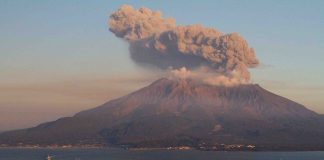Russia has become the first state to formally recognise the Taliban government in Afghanistan, marking a significant diplomatic shift nearly four years after the group regained control of the country.
The announcement, made by the Russian Foreign Ministry, stated that the decision would provide momentum for bilateral cooperation, particularly in counterterrorism and narcotics control.
Moscow’s recognition comes amid its own increasing diplomatic isolation following the full-scale invasion of Ukraine in February 2022. This move appears to align with Russia’s broader foreign policy strategy of consolidating influence among governments viewed as pariahs by the West.
In a statement released on 4 July, the Russian Ministry of Foreign Affairs said: “We proceed from the assumption that the act of official recognition of the government of the Islamic Emirate of Afghanistan will provide an impetus for the development of productive bilateral cooperation.” The statement added that Russia intended to support Kabul in its efforts to combat terrorism and the drug trade, longstanding issues that have plagued Afghanistan for decades.
The Taliban’s Ministry of Foreign Affairs responded on the social media platform X, calling the decision a “historic step” in relations between the two countries. The statement expressed hope that Russia’s move would serve as an example for other nations.
Following the Taliban’s return to power in August 2021, most governments have refrained from granting diplomatic recognition to the administration in Kabul. The regime has faced widespread criticism over human rights violations, particularly the systematic dismantling of women’s rights, restrictions on education for girls, and the exclusion of women from public life. As a result, the Taliban government has remained largely isolated in the international community.
Despite this, some of Afghanistan’s neighbouring countries have maintained pragmatic working relationships with the Taliban, citing border security, trade, and regional stability. States such as China, Iran, and Pakistan have hosted Taliban delegations and engaged in diplomatic contact, though none had previously extended formal recognition.
Russia’s formal recognition breaks this pattern and potentially signals a recalibration of Moscow’s engagement in Central and South Asia. While Russia has maintained a diplomatic presence in Kabul since the Taliban takeover, this is the first time it has officially acknowledged the group as the legitimate governing authority.
Russia has historically had complex relations with Afghanistan. The Soviet Union invaded the country in 1979, triggering a decade-long conflict that ended with the withdrawal of Soviet troops in 1989. In the post-Soviet period, Moscow remained cautious of Islamist movements in Central Asia and Afghanistan, particularly in light of its own concerns about extremism in the North Caucasus. The Taliban, for their part, had previously been designated as a terrorist organisation by the Russian government and remain formally banned within Russian territory.
Nonetheless, practical cooperation between Moscow and the Taliban has intensified in recent years. Russian officials have hosted Taliban representatives in Moscow for talks on security, economic cooperation, and the situation in the region. Russia has also voiced concerns about the threat posed by Islamic State Khorasan Province (ISKP), a rival extremist group active in Afghanistan, and has suggested that collaboration with the Taliban may be necessary to contain its influence.
From the Taliban’s perspective, recognition by a major power such as Russia may help to legitimise their rule domestically and internationally. The Afghan economy remains severely weakened, with high unemployment, limited access to international financial systems, and continued reliance on humanitarian aid. Formal recognition could, in theory, facilitate bilateral trade, investment, and development initiatives, although Western sanctions and banking restrictions remain significant barriers.
There has been no immediate reaction from Western governments to Russia’s move, but the development is likely to provoke concern in Washington and European capitals. Recognition of the Taliban government by a permanent member of the United Nations Security Council may complicate efforts to apply coordinated pressure on the regime in relation to human rights and counterterrorism obligations.
The timing of Russia’s announcement also comes as it seeks to expand its diplomatic and economic partnerships in Asia, Africa, and the Middle East, amid continued tensions with the United States and European Union. Recognition of the Taliban aligns with a broader pattern of outreach to governments facing Western sanctions or isolation, including Iran, North Korea, and Syria.
Read also:
Taliban Orders Windows Blocking Views of Women’s Living Spaces



